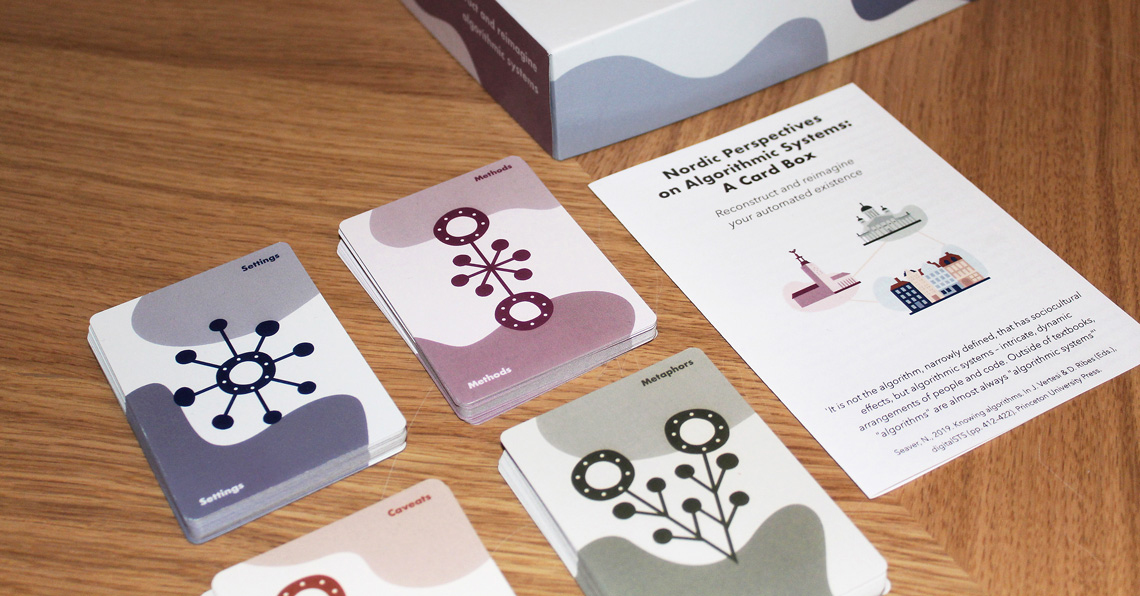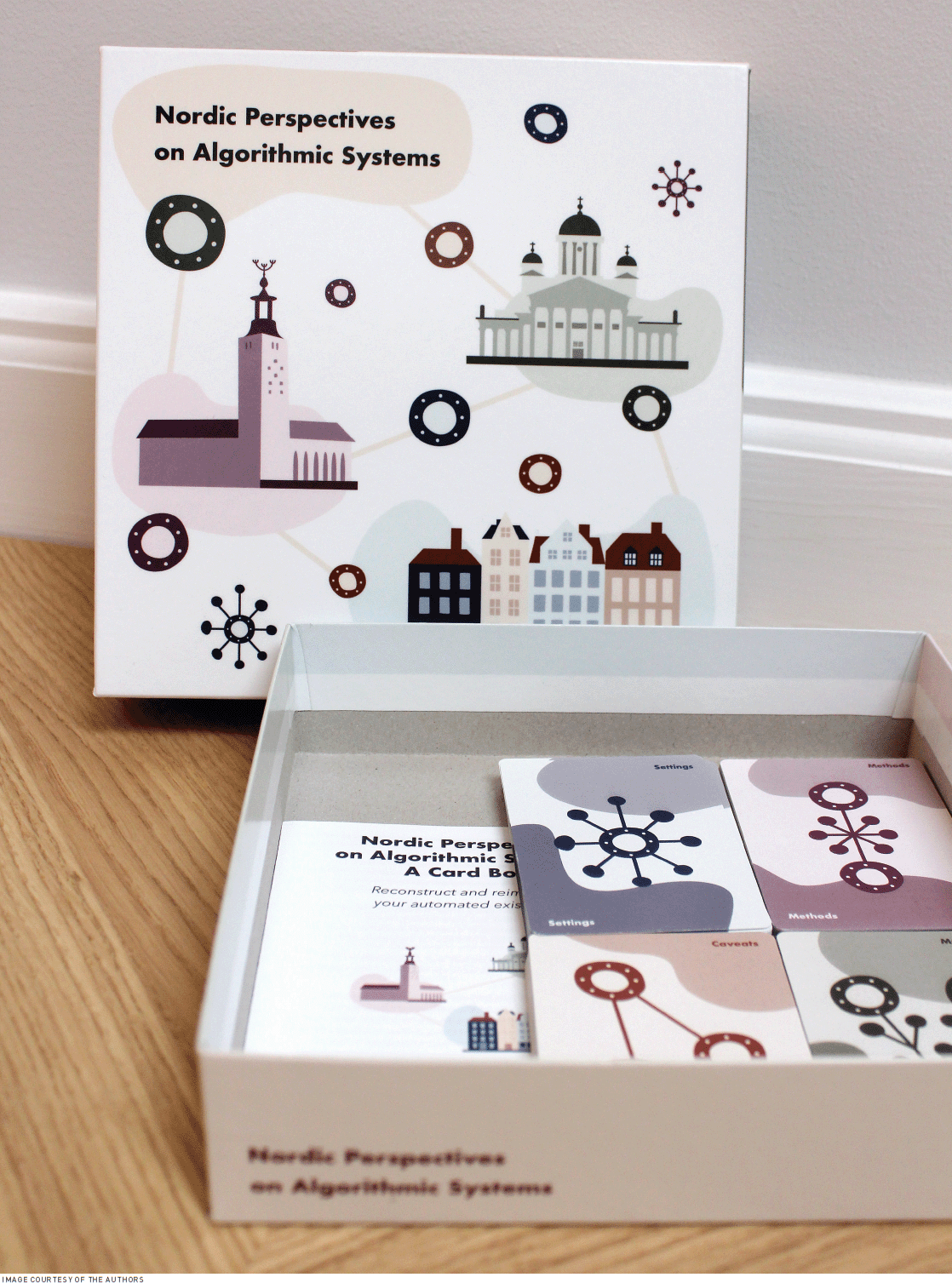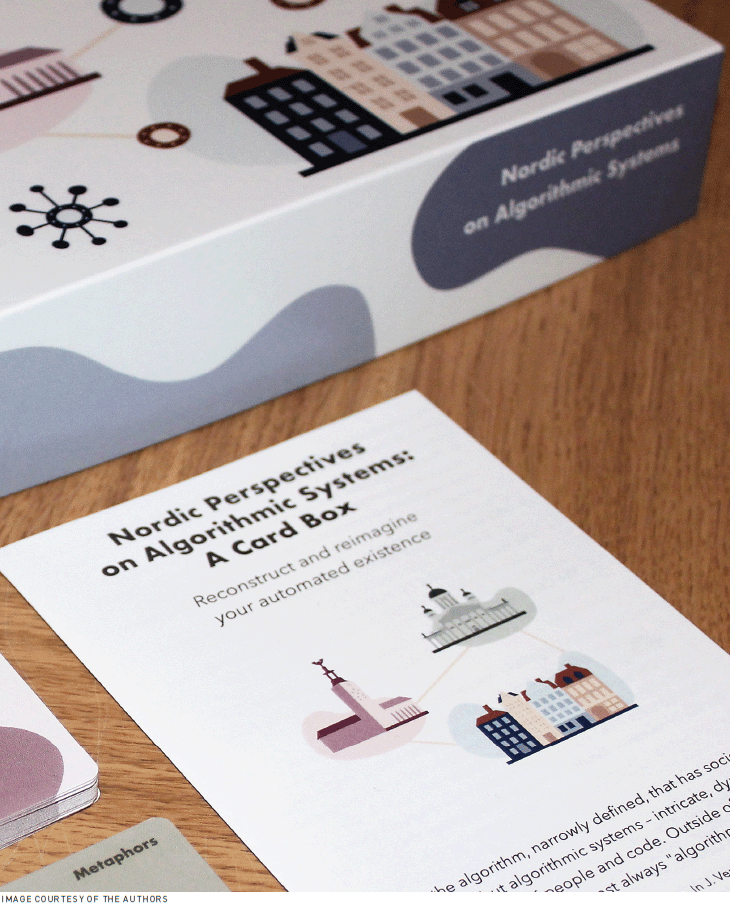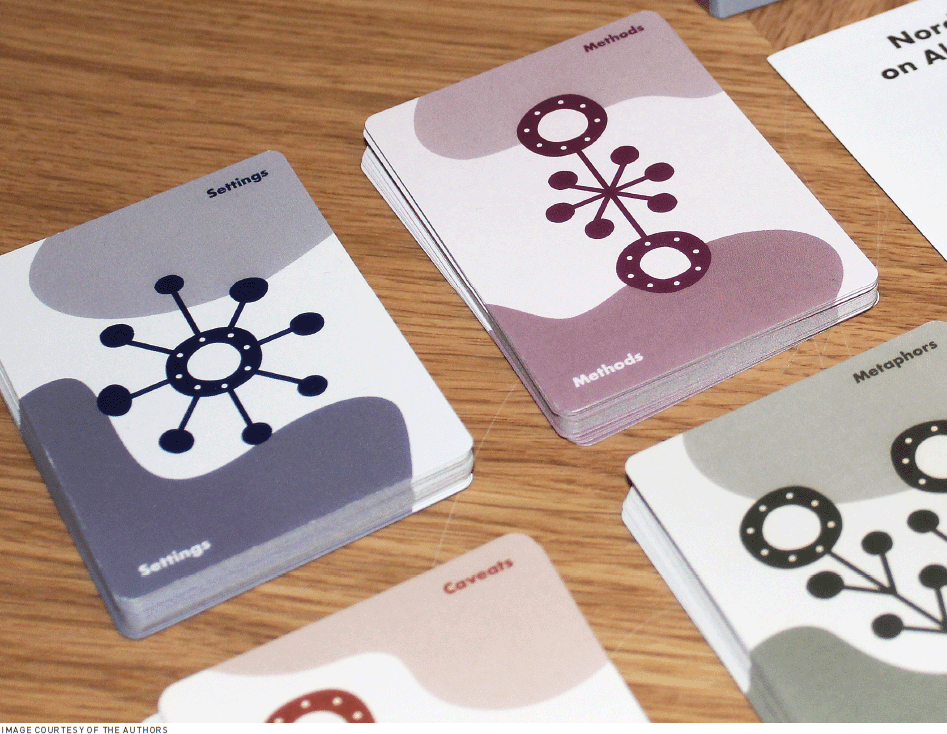Nordic Perspectives on Algorithmic Systems Card Box
Issue: XXXI.6 November - December 2024Page: 8
Digital Citation
Authors:
Pedro Ferreira, Michael Hockenhull, Mace Ojala, Rebeca Blanco Cardozo, Matti Nelimarkka, Airi Lampinen
The Nordic Perspectives on Algorithmic Systems Card Box started with a question. How can critical engagement with algorithmic systems be imagined elsewhere, outside the sociocultural context of the U.S.? Studies on the impact of algorithmic systems have flourished over the past decade, raising global awareness and concern. But they have been overwhelmingly focused on the North American context, grappling with its specific social, political, and economic dynamics.
The card box is offered as a creative intervention supporting critical and ludic engagement with algorithmic systems. The cards can be used for game design, research ideation, reflection, rapid prototyping, or, as we have done on several occasions, a conversation starter in workshops or seminars. The card box was developed through a series of multidisciplinary workshops geared toward bringing together researchers based in Finland, Sweden, and Denmark.
The card box contains four decks. Settings outline contexts where algorithms are deployed, from healthcare to chatbots. Methods suggest approaches for the development or study of algorithmic systems, from data sprints to speculative design. Metaphors inspire new ways of thinking about algorithms, such as thinking of algorithmic systems as bureaucracies, factories, or gardens. In Metaphors, a sorting hat invites players to attend to a mix of automation and individual agency, while drawing a unicorn evokes magic, emphasizing that technology is often not what it appears to be at first glance. Caveats, the final deck, contains surprising requirements that address variables that otherwise might have gone unnoticed. They include the role of public sector institutions and disparities in terms of trust in government, prompting players to revisit unchecked assumptions and transform their ideas.
The card box is offered as a creative intervention supporting critical and ludic engagement with algorithmic systems.
What if your project was suddenly given a constraint to only use technologies that were commercially available in the 1990s? In part, such a requirement would imply a slow, costly, and immobile Internet. What if you were required to hire philosophers for ethics whitewashing? Or, what if you were faced with humans who decided to follow the computer's instructions down to the smallest detail? How would your idea change if you could not trust common sense to fill in any gaps where automation falls short? Playfully combining cards from different decks—be it in a classroom, a research meeting, or alone at your desk—sparks questions about the role of algorithmic systems in society, and how to engage with them critically in Nordic contexts and beyond.
The card box is the product of a Nordic collaboration in the scope of the NOS-HS workshop series—Nordic Perspectives on Algorithmic Systems: Concepts, Methods, and Interventions (2019–22). We would like to thank everyone who took part in the series, particularly the following contributors, whom we consider coauthors of this work: Jesse Haapoja, Juho Pääkkönen, Marisa Cohn, Asko Lehmuskallio, Thomas Olsson, and Barry Brown.
Pedro Ferreira is an associate professor at the IT University of Copenhagen. He is interested in the study of infrastructures that support leisurely and playful interactions with digital technologies. His research also focuses on the impact of postcolonial representations in HCI and information communication technologies for development (ICT4D). [email protected]
Michael Hockenhull is a postdoc in the Business IT Department at the IT University of Copenhagen. His research focuses on public sector digitalization, sustainability reporting, and digital methods. [email protected]
Mace Ojala is a software studies scholar interested in philosophical and anthropological meanings, boundaries, and temporalities of computer software. Mace is currently a Ph.D. candidate at Ruhr University Bochum, writing about the promiscuous and tortured social life of the Portable Document Format (PDF). [email protected]
Rebeca Blanco Cardozo is a multidisciplinary designer and researcher at KTH Royal Institute of Technology. She explores feminist perspectives for interaction design. Her work focuses on body-centric methodologies and technologies, addressing issues from health and wellness to the construction of self-identity. [email protected]
Matti Nelimarkka leads the Social Computing Group at the University of Helsinki. The group explores the intersection of politics and technology using digital, computational, and design-based research approaches. [email protected]
Airi Lampinen is an associate professor in HCI at Stockholm University. She led the workshop series Nordic Perspectives on Algorithmic Systems. Her research is focused on interpersonal challenges at the intersection of economic encounters, algorithmic systems, and computer-supported cooperative work. [email protected]
Copyright held by owners/authors
The Digital Library is published by the Association for Computing Machinery. Copyright © 2024 ACM, Inc.






